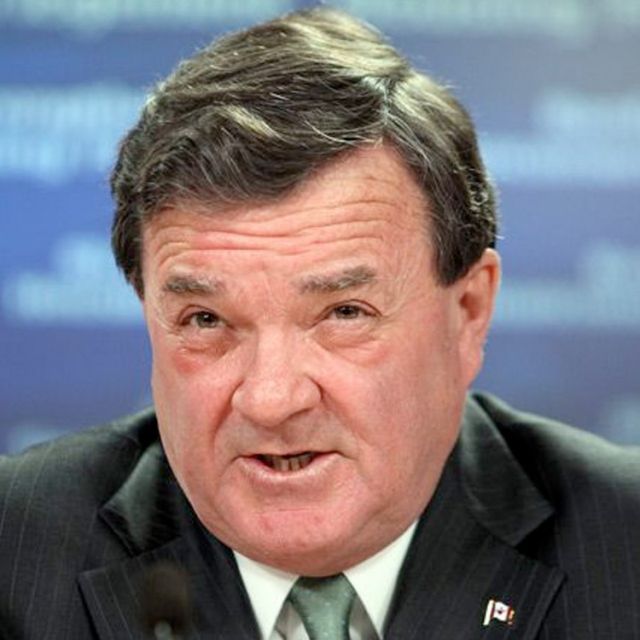While this exercise may seem entirely economic, important ethical issues are involved. Christians should take time to consider how this difficult balancing act can be implemented in ways that reflect our values.
The federal government will soon present the 2012 budget. This will be the first concrete indication of the spending priorities of the majority Conservative government. Finance Minister Jim Flaherty has signalled a plan for an immediate $1 billion in spending cuts (followed by billions more in future years) to address a $31-billion deficit.
Considerable angst is being expressed in the country’s social sector about what these cuts could mean. Several international organizations (including the Canadian Catholic Organization for Development and Peace) fear they may lose grants that support worthy projects overseas. The parliamentary budget officer reports that up to 6,000 public servants could receive pink slips over the next three years.
So what should a budget do — if judged by ethical standards? A biblical ethic would demand that our society get its priorities straight. Our first call is to defend the orphans, the widows and the strangers (Deuteronomy 10:18; 24:17-21.)
In Canada today, children in single-support families and newcomers (those here for less than a decade) are over-represented among the poor. According to Food Banks Canada, 851,014 people were assisted by food banks last March. That’s a 26-per-cent increase since 2008, with 38 per cent of users under age 18.
At the same time, a Jan. 2 report of the Canadian Centre for Policy Alternatives found that, even in these turbulent economic times, the 100 top-earning Canadian CEOs make 189 times more than the average Canadian wage-earner. Over the past 25 years, according to the Caledon Institute of Social Policy, earnings of wealthy Canadians increased 16 per cent, while those of the poor dropped 21 per cent.
There are tendencies inherent in capitalist markets that generate inequality. But government intervention can regulate markets and distribute income to decrease the inequalities that eventually harm all of society. So, will budget 2012 increase or decrease inequality?
Canadians generally believe that government assistance programs favour the poorest income groups, but the Centre for the Study of Living Standards says that government redistribution efforts mostly favour the elderly. There is an important lesson to consider: when Canadians decided to address poverty among seniors in the 1960s, government implemented the Old Age Security and the Guaranteed Income Supplement programs. Now seniors have the lowest poverty rate of any demographic group.
If people of faith decided to battle poverty in Canada, we could unite with others and encourage Ottawa to reduce poverty among other target groups — starting with people with disabilities, children and aboriginal Canadians. And we should ensure seniors are supported by sustaining the OAS and GIS programs. As part of his belt-tightening, Flaherty has indicated changes are coming to OAS.
Of course, not all cuts can or should be avoided. Sometimes political leaders must make tough choices. When Citizens for Public Justice presented a brief to the House of Commons’ Standing Committee on Finance last August, we suggested measures that would not increase spending, but that would lower inequality, assist the vulnerable and sustain livelihoods in beneficial ways:
o Budget 2012 should cancel the corporate income tax cut implemented on Jan. 1 and instead invest the $3 billion in building and repairing affordable housing;
o Budget 2012 should repeal the Tough on Crime agenda and spend the $1.5 billion on aboriginal programs and on the National Child Benefit Supplement;
o Budget 2012 should cancel the oil and gas subsidies and invest the $1.4 billion in green technologies and an eco-retrofit program for low-income households.
Budgets are about choices. We should place our own values first in response to the mistaken mantra that “the economy” presents us with no options. Christians can be the leaven in societal movements that place the needs of the vulnerable and the planet above the wants of the few. The choice is ours.
(Gunn is the Ottawa-based executive director of Citizens for Public Justice, www.cpj.ca, an ecumenical social advocacy organization.)
The common good is the choice we must make
By Joe GunnIn a time of high unemployment, jittery stock markets and worrying news about the European and American fiscal crises, many Canadians have been lowering their debt loads.
Their federal government is planning to do the same. Its challenge is to implement cuts without stalling a fragile recovery while also making the investments necessary to protect the next generation of Canadians.
Please support The Catholic Register
Unlike many media companies, The Catholic Register has never charged readers for access to the news and information on our website. We want to keep our award-winning journalism as widely available as possible. But we need your help.
For more than 125 years, The Register has been a trusted source of faith-based journalism. By making even a small donation you help ensure our future as an important voice in the Catholic Church. If you support the mission of Catholic journalism, please donate today. Thank you.
DONATE
